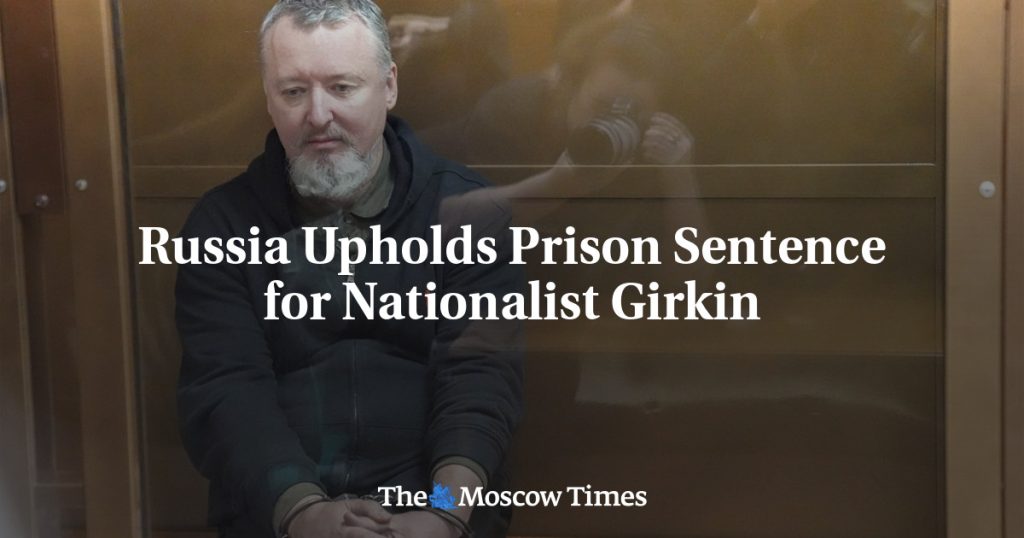A Moscow court upheld the four-year prison sentence for Russian nationalist Igor Girkin, also known as Igor Strelkov, for inciting extremism. The 54-year-old was arrested after criticizing Russian President Vladimir Putin’s handling of the war against Ukraine. Girkin, a convicted war criminal in the West, stated that he serves the fatherland when asked about the ruling, showing his loyalty despite his imprisonment. The appeal hearing was held behind closed doors, and Girkin’s lawyers plan to file a cassation appeal against the decision to leave his sentence unchanged, with the appeal to be considered by the Russian Supreme Court.
Girkin commanded a pro-Russian separatist militia in eastern Ukraine in 2014 and was involved in the annexation of Crimea. In November 2022, a Dutch court sentenced him in absentia to life in prison for his role in the downing of Malaysia Airlines flight MH17, which killed all 298 people on board. Despite his imprisonment, Girkin’s wife revealed that he is seeking to clear his criminal record and serve at the front line in eastern Ukraine. This desire to continue being involved in the conflict highlights Girkin’s strong convictions and dedication to the nationalist cause, despite the legal consequences he faces.
The decision to uphold Girkin’s prison sentence is seen as a warning by the Russian government to those who criticize its actions, particularly in relation to the conflict in Ukraine. By sentencing Girkin for inciting extremism, the government is sending a message that dissent will not be tolerated. The closed-door appeal hearing and the swift decision to maintain the sentence indicate a lack of transparency and due process in Girkin’s case, raising concerns about the fairness of the legal system in handling cases involving political dissent and nationalism.
The case of Igor Girkin reflects the complex dynamics of Russian nationalism and its role in current geopolitical conflicts. Girkin’s involvement in the conflict in Ukraine and his ties to the Russian nationalist movement have made him a central figure in the debate surrounding patriotism, extremism, and loyalty to the state. The imprisonment of Girkin raises questions about the limits of political expression and activism in Russia, as well as the government’s ability to control and suppress dissenting voices within the nationalist movement.
Despite his actions and the legal consequences he faces, Girkin’s determination to clear his record and continue fighting in eastern Ukraine demonstrates his unwavering commitment to his cause. His decision to appeal the court’s ruling and his willingness to face the cassation appeal process suggest that he remains resolute in his beliefs and is willing to endure further legal battles to continue his nationalist activities. The ongoing saga of Igor Girkin sheds light on the complex intersection of politics, nationalism, and the rule of law in modern-day Russia.


